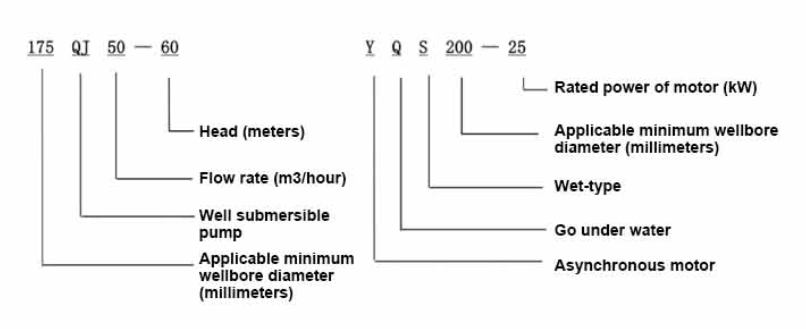Oct . 17, 2024 02:22 Back to list
bore pump
Understanding Bore Pumps Essential Components for Efficient Water Extraction
Bore pumps, often referred to as borehole pumps, are vital components in various applications related to water extraction and management. They are primarily used in agriculture, municipal water supply systems, and industrial operations, helping to tap into underground water sources efficiently. This article will delve into the workings, types, applications, and considerations for bore pumps, providing a comprehensive overview of their significance in modern water management.
Working Principle of Bore Pumps
Bore pumps function based on the principle of hydraulic lift, utilizing a motor that drives an impeller. This impeller creates a centrifugal force that draws water from underground sources and pushes it through a discharge pipe to the surface. The positioning of the pump within the borehole is crucial; pumps are usually designed to be submerged in water, allowing for optimal operation. They can vary in size and power depending on the depth of the borehole and the volume of water required.
Types of Bore Pumps
There are several types of bore pumps, each suited for specific applications
1. Submersible Pumps These are the most common type of bore pumps, designed to operate underwater. They are efficient for deep wells and are available in various sizes to accommodate different depths.
2. Jet Pumps Jet pumps work on the principle of creating a vacuum that draws water up from the borehole. While they are suitable for shallower depths, they are less efficient than submersible pumps for deeper applications.
3. Solar-Powered Pumps With the increasing push for renewable energy, solar-powered bore pumps have gained popularity. These pumps are environmentally friendly and particularly beneficial in remote areas where electricity may not be readily available.
4. Turbine Pumps Turbine pumps consist of several stages of impellers, making them ideal for extremely deep boreholes. They can handle high flow rates and are commonly used in municipal water systems.
Applications of Bore Pumps
Bore pumps serve a multitude of purposes across various sectors
bore pump

- Agriculture They are essential for irrigation systems, providing a reliable water source for crops, ensuring optimal growth, and enhancing food production.
- Municipal Water Supply Many cities rely on bore pumps to extract groundwater for drinking and sanitation purposes, making them critical to public health.
- Industrial Uses In industries such as mining and construction, bore pumps are used to dewater sites, manage water supplies, and support operations that require substantial water resources.
Considerations for Choosing a Bore Pump
When selecting a bore pump, several factors should be taken into account to ensure efficient operation
1. Depth of the Borehole Understanding how deep the water source is will determine the type and size of the bore pump required.
2. Water Demand Estimating the volume of water needed daily will guide the selection of a pump with adequate capacity.
3. Power Source The availability of electricity or preference for solar-powered options can influence the choice of pump.
4. Material and Durability Considering the corrosive nature of groundwater, choosing pumps made from durable materials is essential for longevity.
5. Maintenance and Service Regular maintenance is critical for the longevity and efficiency of bore pumps. Understanding the service and support options available can influence the long-term viability of the system.
Conclusion
Bore pumps are indispensable for efficient water extraction in various applications, from agriculture to municipal supply. By understanding their working principles, types, and applications, as well as considering factors like depth, demand, and material, users can make informed decisions when selecting a bore pump. As water scarcity continues to be a global challenge, bore pumps will play a vital role in sustainable water management practices moving forward.
-
Submersible Water Pump: The Efficient 'Power Pioneer' of the Underwater World
NewsJul.01,2025
-
Submersible Pond Pump: The Hidden Guardian of Water Landscape Ecology
NewsJul.01,2025
-
Stainless Well Pump: A Reliable and Durable Pumping Main Force
NewsJul.01,2025
-
Stainless Steel Submersible Pump: An Efficient and Versatile Tool for Underwater Operations
NewsJul.01,2025
-
Deep Well Submersible Pump: An Efficient 'Sucker' of Groundwater Sources
NewsJul.01,2025
-
Deep Water Well Pump: An Efficient 'Sucker' of Groundwater Sources
NewsJul.01,2025
-
 Submersible Water Pump: The Efficient 'Power Pioneer' of the Underwater WorldIn the field of hydraulic equipment, the Submersible Water Pump has become the core equipment for underwater operations and water resource transportation due to its unique design and excellent performance.Detail
Submersible Water Pump: The Efficient 'Power Pioneer' of the Underwater WorldIn the field of hydraulic equipment, the Submersible Water Pump has become the core equipment for underwater operations and water resource transportation due to its unique design and excellent performance.Detail -
 Submersible Pond Pump: The Hidden Guardian of Water Landscape EcologyIn courtyard landscapes, ecological ponds, and even small-scale water conservancy projects, there is a silent yet indispensable equipment - the Submersible Pond Pump.Detail
Submersible Pond Pump: The Hidden Guardian of Water Landscape EcologyIn courtyard landscapes, ecological ponds, and even small-scale water conservancy projects, there is a silent yet indispensable equipment - the Submersible Pond Pump.Detail -
 Stainless Well Pump: A Reliable and Durable Pumping Main ForceIn the field of water resource transportation, Stainless Well Pump has become the core equipment for various pumping scenarios with its excellent performance and reliable quality.Detail
Stainless Well Pump: A Reliable and Durable Pumping Main ForceIn the field of water resource transportation, Stainless Well Pump has become the core equipment for various pumping scenarios with its excellent performance and reliable quality.Detail
